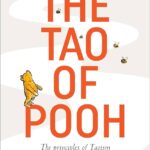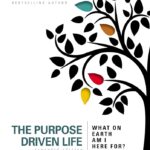Welcome to Thinkers Books, where we delve into the timeless wisdom of influential books that have left an indelible mark on humanity. I’m Robert N. Jacobs, and today, we’re focusing on a transformative classic that has revolutionised the lives of millions worldwide. Prepare to unearth the secrets of wealth and success as we explore George Clason’s magnum opus, “The Richest Man in Babylon.”
“The Richest Man in Babylon” is a treasure trove of knowledge that will reshape your perspective on money. Through the medium of ancient Babylonian parables, Clason takes us back to reveal the core principles of wealth-building that remain valid to this day.
The narrative follows Arkad, the wealthiest man in Babylon, who imparts his wisdom to those eager to learn. He introduces the “Seven Cures for a Lean Purse,” representing the critical principles of wealth accumulation. They are;
- Start thy purse to fattening: Save at least 10% of your income to create a solid base for wealth accumulation.
- Control thy expenditures: Essential for financial success is living within your means and effectively managing your expenses by differentiating between necessities and luxuries.
- Make thy gold multiply: Consistently and wisely invest, seeking profitable opportunities and harnessing the power of compound interest to multiply your wealth over time.
- Guard thy treasures from loss: Safeguard your wealth by investing in secure and reliable ventures. Use wise counsel to minimise risk and ensure the security of your investments.
- Make thy dwelling a profitable investment: Homeownership, instead of renting, offers a stable living environment and enables equity building over time.
- Ensure a future income: Long-term planning, such as setting up retirement funds and insurance policies, guarantees financial security for you and your family.
- Increase your earning ability: Continually develop your skills and knowledge to boost your earning potential. Remain open and curious about new opportunities.
Implementing these seven cures makes it possible to transform a lean purse into a prosperous one.
While it would be impossible to encapsulate all the insights from this book in one summary, here are my top 5 learning points that resonated with me:
- Pay Yourself First: This principle is based on the idea that before you pay your bills, buy groceries, or do anything else with your paycheck, you should set aside a portion for yourself – ideally, at least 10% of your income. This money isn’t for your next vacation or shopping spree but for your future. It’s your nest egg that you will invest in and grow over time.
- Control Your Expenses: Financial success is not only about how much you earn but also how well you manage your money. It means understanding the difference between wants and needs and making conscious decisions accordingly. By keeping track of your spending habits, you can identify areas where you might be overspending and look for ways to cut back.
- Make Your Money Work for You: One of the critical teachings of the book is the concept of making your money work for you, i.e., investing. Instead of letting your savings sit idle, you should put them to work by investing in reliable and profitable ventures. This could be anything from stocks, bonds, real estate, or starting a business.
- Seek Wise Counsel: No matter how smart or experienced you are, there’s always something to learn from others. The book advocates seeking advice from knowledgeable people who have had success in the area you’re interested in, particularly when it comes to investing.
- Increase Your Ability to Earn: Increasing your earning ability can be achieved through continual learning and skills development. By constantly improving your skills and knowledge, you become more valuable in the job market, leading to better job opportunities and higher pay.
“The Richest Man in Babylon” is a timeless classic that has encouraged countless readers to take control of their financial future. Its practical and easy-to-follow advice remains as relevant today as it was thousands of years ago. Personally, applying these principles has significantly impacted my financial health.
As we conclude our journey through ancient Babylon, let’s reflect on an inspiring quote from the book: “Wealth, like a tree, grows from a tiny seed. The first copper you save is the seed from which your tree of wealth shall grow. The sooner you plant that seed, the sooner the tree grows.” So plant your seed and watch your wealth tree flourish.
Thank you for joining us today. If you found this exploration of “The Richest Man in Babylon” insightful, we invite you to delve into more summaries from Thinkers Books. We believe in the power of knowledge and the transformation that lifelong learning can bring. Until next time, keep thinking, keep learning, and stay curious.







